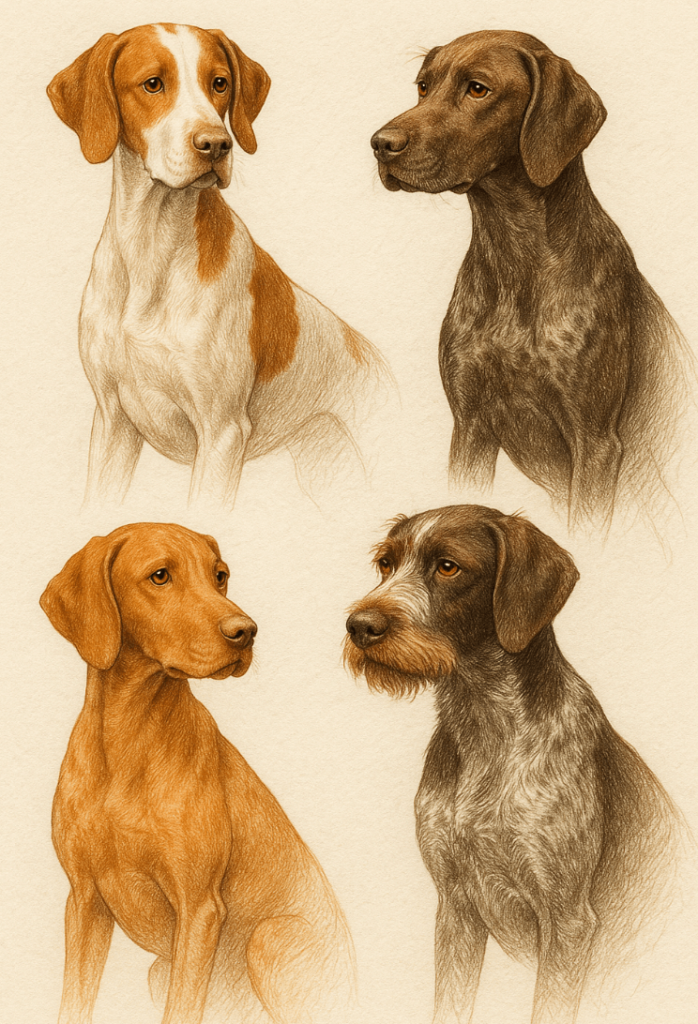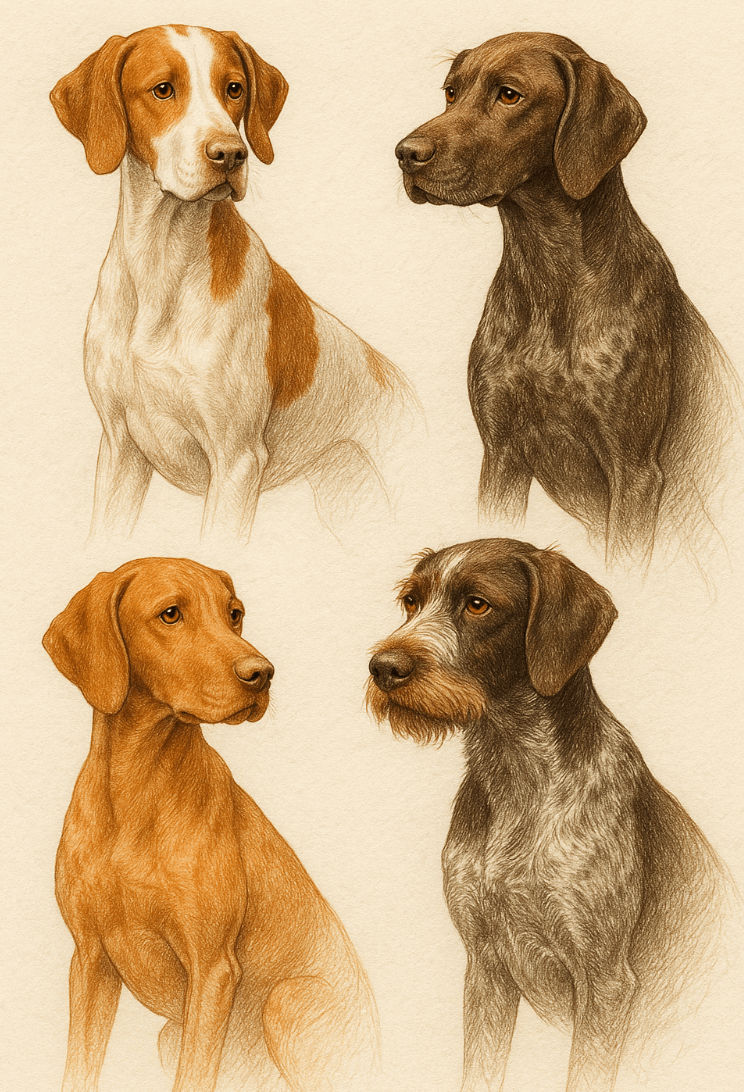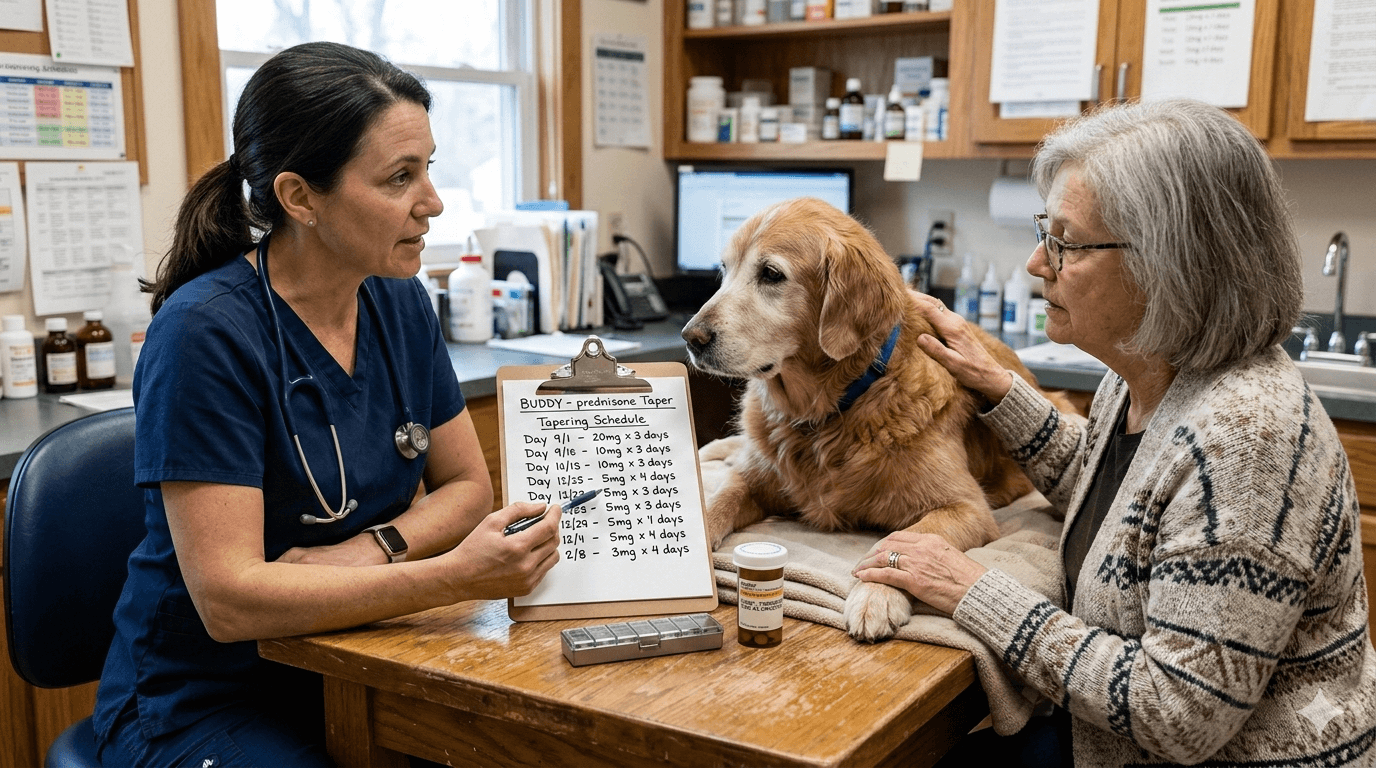Types of Pointer Dog Breeds
Pointer dogs are renowned for their exceptional hunting skills, intelligence, and energetic personalities. These breeds excel at “pointing”—a behavior where they freeze in a specific stance to indicate the location of game birds. Whether you’re an avid hunter or simply looking for a loyal companion, pointer dogs offer a unique blend of athleticism, loyalty, and charm. From the classic English Pointer to lesser-known varieties, this blog post will explore the different types of pointer dog breeds, their characteristics, and what makes them such beloved pets and working dogs.
Popular Types of Pointer Dogs
There are several pointer breeds, each with its own unique traits and qualities. Here’s a closer look at some of the most popular types of pointer dogs that have captured the hearts of dog enthusiasts worldwide.
English Pointer:
Known as the quintessential pointing breed, the English Pointer is highly intelligent, athletic, and excels in fieldwork.German Shorthaired Pointer:
This versatile breed is prized for its agility, endurance, and ability to adapt to various terrains and climates.Brittany Spaniel (or Brittany Pointer):
A smaller pointer breed, the Brittany is energetic, affectionate, and great for families who love outdoor activities.Vizsla:
Often referred to as the “Velcro dog,” the Vizsla is known for its loyalty, trainability, and sleek, reddish-gold coat.Wirehaired Pointing Griffon:
With a wiry coat and friendly demeanor, this breed thrives in rugged environments and forms strong bonds with its owners.
These pointer breeds showcase the diversity within the group, offering options for hunters, active families, and anyone seeking a devoted canine companion.
Key Characteristics of Pointer Dogs
Pointer dogs share many common traits that make them stand out among other breeds. Understanding these characteristics can help you determine if a pointer dog is the right fit for your lifestyle.
High Energy Levels:
Pointers are incredibly active and require plenty of exercise to stay happy and healthy.Intelligence and Trainability:
These dogs are quick learners and respond well to positive reinforcement training methods.Strong Prey Drive:
Bred for hunting, pointers have a natural instinct to chase small animals, which requires careful supervision.Loyal and Affectionate Nature:
Despite their working-dog roots, pointers form deep bonds with their families and thrive on companionship.Low Grooming Needs (for most breeds):
Many pointers have short coats that are easy to maintain, though some, like the Wirehaired Pointing Griffon, need regular brushing.
These shared traits highlight why pointer dogs are valued for both their work ethic and their role as loving family pets.
Check this guide 👉German Shorthaired Pointer Dog: Best 7 Expert Tips!
Check this guide 👉Border Collie Pointer Mix: Best 7 Expert Tips!
Check this guide 👉German Shorthaired Pointer Golden Retriever Mix: Best 7 Tips

Best Pointer Breeds for Families | Best Pointer Breeds for Hunting |
|---|---|
German Shorthaired Pointer | English Pointer |
Brittany Spaniel | Vizsla |
Wirehaired Pointing Griffon | German Wirehaired Pointer |
Labrador Retriever (with pointing mix) | Spinone Italiano |
Small Munsterlander | Bracco Italiano |
Training Tips for Pointer Dogs
Training a pointer dog requires patience, consistency, and an understanding of their high-energy nature. Follow these tips to ensure a successful training experience.
Start Early:
Begin training and socialization during puppyhood to establish good habits from the start.Use Positive Reinforcement:
Reward your pointer with treats, praise, or playtime to encourage desired behaviors.Focus on Obedience Commands:
Teach basic commands like “sit,” “stay,” and “come” to manage their energy and prevent unwanted chasing.Incorporate Mental Stimulation:
Puzzle toys and scent-based games help satisfy their sharp minds and reduce boredom.Provide Plenty of Physical Exercise:
Daily runs, hikes, or play sessions are essential to burn off excess energy and prevent destructive behaviors.
With the right approach, training your pointer dog can be a rewarding experience that strengthens your bond.
Health Considerations for Pointer Dogs
Like all breeds, pointer dogs are prone to certain health issues. Being aware of these potential concerns allows you to provide the best care for your furry friend.
Hip Dysplasia:
Common in larger pointer breeds, hip dysplasia can lead to mobility issues and requires veterinary monitoring.Ear Infections:
Breeds with floppy ears, like the Brittany Spaniel, are more susceptible to ear infections due to trapped moisture.Bloat (Gastric Torsion):
Deep-chested breeds like the German Shorthaired Pointer are at higher risk for bloat, a life-threatening condition.Eye Problems:
Conditions such as progressive retinal atrophy (PRA) can affect vision in some pointer breeds.Allergies:
Skin allergies caused by environmental factors or food sensitivities are relatively common in pointers.
Regular vet check-ups and proactive care can help mitigate these risks and keep your pointer dog healthy and happy.
Activities That Suit Pointer Dogs
Pointer dogs thrive when engaged in activities that challenge their bodies and minds. Here are some ideas to keep your pointer entertained and fulfilled.
Agility Training:
Courses with tunnels, jumps, and weave poles are perfect for channeling their energy and improving obedience.Scent Work:
Leverage their natural hunting instincts by teaching them to locate hidden scents in controlled environments.Running and Hiking:
Long-distance runs or hikes provide the physical exertion pointers crave while strengthening your bond.Fetch Games:
Playing fetch with balls or frisbees is an excellent way to tire them out in a backyard or park.Dock Diving:
Many pointers enjoy water sports, and dock diving competitions allow them to showcase their swimming skills.
Engaging in these activities ensures your pointer stays physically fit and mentally sharp.
Nutritional Needs of Pointer Dogs
A balanced diet is crucial for maintaining the health and vitality of your pointer dog. Here’s what to consider when planning their meals.
High-Protein Diets:
Pointers benefit from protein-rich foods that support muscle development and sustained energy levels.Healthy Fats:
Omega-3 fatty acids promote skin and coat health while supporting joint function.Portion Control:
Overfeeding can lead to weight gain, so follow portion guidelines based on your dog’s size and activity level.Hydration:
Ensure fresh water is always available, especially after intense exercise or during hot weather.Avoid Harmful Foods:
Steer clear of toxic human foods like chocolate, grapes, and onions to prevent serious health issues.
Providing proper nutrition ensures your pointer dog remains active and healthy throughout their life.
Socialization Tips for Pointer Dogs
Proper socialization is key to raising a well-rounded pointer dog. These tips will help your pup grow into a confident and friendly adult.
Expose Them to Different Environments:
Introduce your pointer to various settings, including parks, busy streets, and quiet spaces, to build confidence.Interact with Other Dogs:
Arrange playdates with well-behaved dogs to teach appropriate social cues and reduce fearfulness.Introduce New People Gradually:
Let your pointer meet people of all ages and appearances to prevent shyness or aggression.Handle Their Paws and Ears Regularly:
Gentle handling prepares them for grooming and vet visits, reducing stress later in life.Reward Calm Behavior:
Praise and reward your pointer for remaining calm in new or overwhelming situations.
Early and consistent socialization lays the foundation for a happy, adaptable pointer dog.
Frequently Asked Questions About Pointer Dogs
Are pointer dogs good for first-time owners?
While pointers are intelligent, their high energy and training needs may be challenging for inexperienced owners.
How much exercise do pointer dogs need daily?
Most pointers require at least 1-2 hours of vigorous exercise per day to stay physically and mentally stimulated.
Do pointer dogs get along with other pets?
Yes, but their strong prey drive means careful introductions are necessary, especially with smaller animals.
What is the lifespan of a pointer dog?
On average, pointer dogs live 12-15 years, depending on the breed and overall health.
Are pointer dogs suitable for apartment living?
Some smaller pointers, like the Brittany Spaniel, can adapt to apartments if given sufficient exercise and mental stimulation.
Choosing the Right Pointer Dog for You
Pointer dogs are remarkable companions, blending intelligence, loyalty, and boundless energy into one incredible package. Whether you’re drawn to the elegance of the English Pointer, the versatility of the German Shorthaired Pointer, or the affectionate nature of the Vizsla, there’s a pointer breed to suit nearly every lifestyle. By understanding their unique traits, training needs, and health considerations, you can make an informed decision about welcoming one of these amazing dogs into your home. With proper care and attention, a pointer dog can become a cherished member of your family for years to come.
How to Taper Off Prednisone for Cats: Best 7 Expert Tips! – Safely reduce prednisone with vet guidance. Learn now!
How to Taper Off Prednisone Schedule for Dogs: Best 7 Tips! – Learn the safe way to reduce prednisone, recognize withdrawal signs, and keep your dog healthy during the process.
Can a Cat Scratch Give You Rabies? Best 7 Expert Tips! – Learn how rabies spreads, assess risks from cat scratches, and know when to seek medical help. Stay safe!
Can a Dog Scratch Give You Rabies? Best 7 Expert Tips! – Learn the risks, symptoms, and steps to take if scratched by a dog. Stay informed and protect yourself from rabies exposure.





